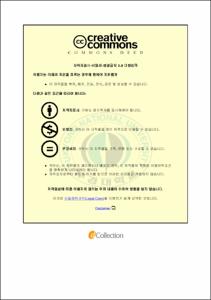고등학생들의 영어 독해 저해요인에 관한 연구
- Alternative Title
- A study on the interfering factors in the English reading comprehension of Korean high school students
- Abstract
- The purpose of this study is to explore the interfering factors such as linguistic, text, background knowledge, strategy, and affective factors in the English reading comprehension of Korean high school students. Specifically, it aims to examine the factors constructing interference of reading comprehension according to their reading ability. To this end, seventy-eight first graders of high school were asked to participate in this study and they took English reading comprehension test, which was made up of 20 multiple-choice questions. According to English reading test results they were divided into three groups. In addition, all three groups were required to complete a survey, revised version of Kim(2009)'s questionnaire about analysis on the interfering factors in TOEIC reading comprehension of university students. It was consisted of thirty Likert-scale items scored on a five point-scale, and one open question.
The result of statistical analysis showed that reading strategy was the highest interfering factor among participants compared to other factors, which indicated that strategy factor could be the major source ofinterference in reading comprehension. In terms of the differences in the interfering factors between these three groups, the following results were revealed. Relating to linguistic factor, the lowest group had the highest level, and there were differences in reading comprehension ability between all three groups. In background knowledge, text, strategy, and affective factors the lowest group had the highest levels, and there were differences in reading comprehension ability between the highest and lowest group. In experience factor, the lowest group had the highest level, however there were no significant differences between groups. Especially, experience factor was the least interference than other factors, which indicated that reading contents or exams relating to experience factor had minor role in reading comprehension. Lastly, in the rest factor, the lowest group had the highest level, and there were differences between groups.
The results of this study have implications. To make English reading education effective, teaching diverse reading strategies to students is desirable. The success of reading comprehension depends on how quickly and accurately readers can process the text. Therefore, students should be encouraged to acquire good reading strategy. Along with improving reading strategy, the teacher should consider the lowest group's difficulties within their reading comprehension. Five factors could influence reading comprehension in this group such as the linguistic, background knowledge, text, affective, and the rest factors. Thus the teacher should assign some time for the lowest group to focus on teaching these factors compared to the other two groups.
- Issued Date
- 2012
- Awarded Date
- 2012. 8
- Type
- Dissertation
- Publisher
- 부경대학교
- Alternative Author(s)
- Kim, Yu Jin
- Affiliation
- 부경대학교 교육대학원
- Department
- 교육대학원 영어교육전공
- Advisor
- 조윤경
- Table Of Contents
- ABSTRART……………………………………………… ⅵ
Ⅰ. 서 론 …………………………………………………1
1.1 연구의 필요성 및 목적……………………………1
1.2 연구 과제……………………………………………2
1.3 연구의 제한점………………………………………3
Ⅱ. 이론적 배경 …………………………………………4
2.1 독해의 정의 ………………………………………4
2.2 독해과정 모형 ……………………………………7
2.2.1 상향식 모형……………………………………7
2.2.2 하향식 모형……………………………………9
2.2.3 상호작용 모형…………………………………10
2.2.4 스키마 이론적 관점……………………………12
2.2.5 독해과정에의 정의적인 요인…………………14
2.3 독해 저해요인 ……………………………………15
2.3.1 독자요인…………………………………………15
2.3.1.1 언어적 지식 …………………………………16
2.3.1.2 스키마 ………………………………………17
2.3.1.3 독해전략……………………………………19
2.3.1.4 정의적 요인…………………………………21
2.3.2 텍스트 요인………………………………………24
2.4 독해 저해요인에 관한 선행 연구 …………………26
Ⅲ. 연구 내용 및 방법 ……………………………………30
3.1 연구 참여자 …………………………………………30
3.2 연구 도구 ……………………………………………31
3.2.1 설문지……………………………………………31
3.2.2 영어 독해력 검사지……………………………32
3.3 자료 수집 절차 및 분석 ……………………………33
Ⅳ. 분석 결과 ………………………………………………35
4.1 영어 독해 저해요인 결과 분석 ……………………35
4.2 영어 독해능력에 따른 저해요인 결과 분석 ………40
Ⅴ. 결론 및 제언 …………………………………………64
5.1 결론 …………………………………………………64
5.2 제언 …………………………………………………65
참고문헌 ……………………………………………………67
부록 ……………………………………………………… 76
1. 독해 저해요인 설문지 ………………………………76
2. 영어 독해력 검사지 …………………………………80
- Degree
- Master
- Files in This Item:
-
-
Download
 고등학생들의 영어 독해 저해요인에 관한 연구.pdf
기타 데이터 / 3.77 MB / Adobe PDF
고등학생들의 영어 독해 저해요인에 관한 연구.pdf
기타 데이터 / 3.77 MB / Adobe PDF
-
Items in Repository are protected by copyright, with all rights reserved, unless otherwise indicated.